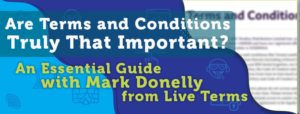What Are the Online Scams You Should Look Out For?
Here in Australia and around the world, many people fall prey to various online scams. This is especially true for individuals who are aged 55 and older. In fact, according to Scamwatch, many older Australians have reported close to 9,500 scams just this year. Compared to younger generations, they have lost four times more money on scams, losing $12,234.81 on average!
Trending Online Scams
To avoid scammers, you’ll have to be mindful of the different methods they use. Here are some of the most common scams that occur online:
Investment Scams
For the average person, differentiating between an investment scam and a genuine investment opportunity can be tricky. These scams often seem professional and believable, offering high and quick returns with little to no risk. Victims are often pressured to make a decision quickly, and many comply because they fear that they’ll miss out on a great investment deal.
If the offer seems too good to be true, it probably is. Before handing over your money, get a second opinion from trusted sources, such as your friends, colleagues, family members, and finance professionals. Also, make sure to ask if the people offering you the deal have an Australian Financial Services (AFS) licence. If they claim to be professional brokers or portfolio managers but don’t have a licence, this is a tell-tale sign that the investment deal is a scam.
Romance and Dating Scams
Many scammers scour dating sites and social media platforms in search of older Australians who are recently divorced or have lost a long-term partner. They do this to try to take advantage of the victim’s vulnerable emotional state and inexperience with online dating sites. The scammers may start asking for money after building trust with him or her.
To keep yourself safe from these online scams, always be aware that someone you have never met may not always be who they say they are. Never send money or provide financial details to an individual you’ve never met in person. If the person you’re chatting with online isn’t prepared to meet with you face-to-face, ending the relationship there and then may be best.
Hacking
This is when someone tries to break into your computer and mobile device. By stealing your personal information, the hackers could impersonate you, steal money from your bank account, or sell your details to cybercriminals.
You can take steps to prevent hacking by installing antivirus software, using multi-factor authentication when possible, and being careful about the links you click.
Watch: What Is Better Than Just Having a Good Password
Other Online Scams
Many people have also lost money through phishing, remote access scams, and threat-based impersonation scams.
The key to avoiding these is by being wary of suspicious emails and attachments. You should also never give personal details over the phone unless you made the call and the number came from a trusted source.
The Final Word
Contact a CHB Leader in Managed IT Support to learn more about IT outsourcing and other IT security solutions for your business.
Do you want to receive quality content about technology, business growth, life and mental health every week?
[module-377]





























